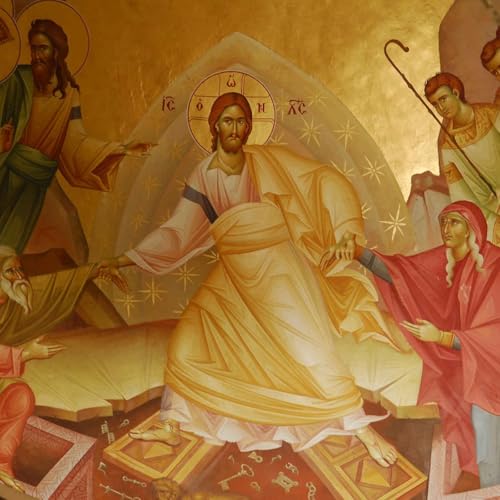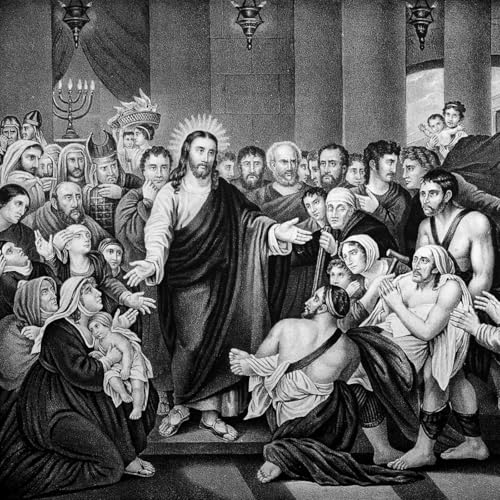Read Online“And some seed fell on rich soil and produced fruit. It came up and grew and yielded thirty, sixty, and a hundredfold.” He added, “Whoever has ears to hear ought to hear.” And when he was alone, those present along with the Twelve questioned him about the parables. Mark 4:8–10The Parable of the Sower is one of Jesus’ foundational teachings. When preaching from a boat to a large crowd, Jesus used parables to reveal the mystery of the Kingdom of God. Afterward, His disciples questioned why He spoke in veiled language rather than directly. Jesus responded, “The mystery of the kingdom of God has been granted to you. But to those outside everything comes in parables, so that ‘they may look and see but not perceive, and hear and listen but not understand, in order that they may not be converted and be forgiven’” (Mark 4:11–12).At first, this response might seem perplexing. Why would Jesus teach in a way that some would not understand, potentially hardening their hearts further? To understand this, we turn to the Prophet Isaiah, whom Jesus quoted (cf. Isaiah 6:8–13). God commissioned Isaiah to preach to a people who were stubborn and unrepentant, saying they would “look and see but not perceive” and “hear and listen but not understand.” Despite Isaiah’s zeal, God permitted their hardness of heart so they could face the consequences of their refusal to repent. This prophetic action sheds light on Jesus’ use of parables.God “wills everyone to be saved and to come to knowledge of the truth” (1 Timothy 2:4). However, for those who refuse His Word, God sometimes permits their obstinacy as an act of mercy. Parables serve a dual purpose. For those open, they invite reflection and reveal deeper truths that lead to greater faith. For those closed, parables expose their resistance, deepening their awareness of spiritual emptiness. This process, though painful, is a merciful act, meant to confront individuals with the consequences of their sin and lead them to repentance.The Parable of the Sower, in particular, invites us to examine the “soil” of our own hearts. God, in His generosity, spreads the seed of His Word widely, offering grace and Truth to everyone. What kind of soil are you? Are you like the path, where the Word is quickly devoured by distractions, pride, or indifference, leaving no room for growth? Are you like the rocky ground, receiving the Word with enthusiasm but lacking the roots to endure trials and tribulations? Or are you like the thorny ground, where worldly anxieties, the lure of riches, and divided priorities choke the Word before it can bear fruit?Ideally, we are none of the above. Jesus calls us to cultivate rich soil—a heart receptive to His Word, where His grace takes root and bears abundant fruit. Only when we are receptive to grace and nurture the truths we have received through fidelity can we see God’s Word flourish in our lives.This parable also teaches us how to respond to those who appear closed and obstinate. It is tempting to grow discouraged or angry and give up. But that is not what Jesus did, nor is it what Isaiah did. Isaiah fulfilled his mission to preach, even to those who rejected him. Similarly, Jesus continued to preach, using parables to reach all people, knowing that rejection would come. Reflect today on the soil of your heart and the hearts of those whom you are called to evangelize. Through prayer, nourish the Word of God within you so it can bear fruit. Persevere in sharing God’s Word with others. When Isaiah asked how long he should continue preaching, God responded, “Until the cities are desolate, without inhabitants, Houses, without people, and the land is a desolate waste.” In other words, do not stop, even in the face of rejection. Even when all hope seems gone. Sow the seed of God’s Word faithfully, trusting that even the hardened soil of obstinate hearts can one day bear good fruit. My relentless Lord, You sow Your Word with superabundant generosity, showering Your Truth upon all in the hope of their repentance. Grant that I may be among those who listen attentively, cherish Your Word, and nourish it within my heart. As my faith takes root and grows, use me as an instrument of Your grace to reach out to others, tirelessly sowing Your Truth in those You have entrusted to me. Strengthen me to persevere in this mission until the end of my days on earth. Jesus, I trust in You. Image: Parable of the Sower by Lawrence OP, license CC BY-NC-ND 2.0.Source: Free RSS feed from catholic-daily-reflections.com — Copyright © 2025 My Catholic Life! Inc. All rights reserved. This content is provided solely for personal, non-commercial use. Redistribution, republication, or commercial use — including use within apps with advertising — is strictly prohibited without written permission.
Show more
Show less
 7 mins
7 mins 7 mins
7 mins 7 mins
7 mins 7 mins
7 mins 7 mins
7 mins 7 mins
7 mins 7 mins
7 mins 7 mins
7 mins
